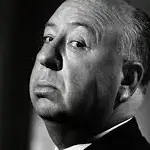I stumbled upon a post about the movie "The Butterfly Effect," discussing its various alternate endings. This rekindled my interest in the film.
"It has been said that something as small as the flutter of a butterfly’s wing can ultimately cause a typhoon halfway around the world." - Chaos Theory.
This is the most popular and well-known expression of Chaos Theory. The term "butterfly effect" originally comes from a paper presented by E.N. Lorenz, one of the founders of Chaos Theory, at the 139th meeting of the American Association for the Advancement of Science in 1972: "A butterfly flapping its wings in the Brazilian jungle might cause a tornado in Texas." A chaotic system is unpredictable, unmanageable, and uncontrollable, with extreme sensitivity to initial conditions. Even the slightest change in the initial state can lead to drastic changes in the system's later stages.

Evan discovers that he can return to specific moments in his past and retrieve lost memories by reading his old diaries. In his quest for the ideal present, he repeatedly goes back in time. But every change brings unexpected consequences: he remembers his love for Kayleigh, but she ends up dying indirectly because of it; he becomes her boyfriend, but ends up killing her brother; he saves the dog, but Lenny kills Tommy and ends up in a mental institution, while Kayleigh becomes a guilt-ridden drug-addicted prostitute; he saves Mrs. Semple and her child but becomes disabled, while Lenny and Kayleigh become a happy couple... Every time he revisits the past, he hopes to change the final "now" through known outcomes, but the changes only mark the beginning. Each unwilling flashback leaves Evan struggling against the changing "reality."

The director created four endings, but only two were actually used. One is the director's extended version: Evan watches a home video of his mother about to give birth to him. He decides to end it all by strangling himself with the umbilical cord, stopping his life before it begins. In this version, Evan never exists in reality. Kayleigh and Tommy are raised by their mother after the divorce, far from their abusive father, and the dynamite incident never occurs. In the theatrical version: Evan watches a home video of the party where he first met Kayleigh. He returns to the past and yells at Kayleigh, preventing their friendship. Kayleigh and Tommy are raised by their mother. In adulthood, Evan sees Kayleigh on the street but they don't recognize each other. The other two endings are variations of the theatrical version: in one, Evan runs after Kayleigh; in the other, they recognize each other.
Unfortunately, I saw the Hollywood-style theatrical ending, which I vaguely felt was rushed and shallow, likely to meet the market's demand for warmth. Personally, I prefer the first ending.

We often regret past choices and say, "If I had done this or that, things would be different today." But would they really be different? Knowing the outcome, can we change the cause? Evan's ability is something many people dream of: a never-ending supply of regret pills. With it, you can take back a misspoken word, fix a mistake, win back a lover, or prevent a war... But can you really "take it back"?
The application of Chaos Theory to time travel means that any small change in the "past" leads to unpredictable changes in the "future." Thus, trying to influence the present by altering the past leads only to unpredictability. Regret and hypotheticals about past choices are meaningless and may not lead to better possibilities. Therefore, we must believe that each choice is the best choice.
—But this isn't the greatest tragedy!

It reminded me of Greek tragedy, of Oedipus Rex. The "gods" (or "fate") in Greek mythology also seem to loom around Evan. The former's oracle (or the words of the seer) and the latter's "present" are both unchangeable inevitabilities—the difference being that the ancient "gods" were more arbitrary. Modern fate allows for variation, but both conclusions lean towards imperfection and tragedy. Any struggle is futile. Evan repeatedly tries to alter the causes based on the known outcomes. But "every struggle only tightens the net of fate." This is precisely what is most shocking about Greek tragedy! If Oedipus, born destined to kill his father and marry his mother, could choose, I think he would also prefer to sever the umbilical cord and end his life before it began.
This film can be understood and categorized in many ways: as a mystery, a psychological thriller, a love story about sacrifice, or a sci-fi imagining of time travel. But I prefer to see it as a reflection on the confusion and helplessness in fighting fate, ultimately compromising by ending oneself. Perhaps this reveals some truths about life!








Share your thoughts!
Be the first to start the conversation.